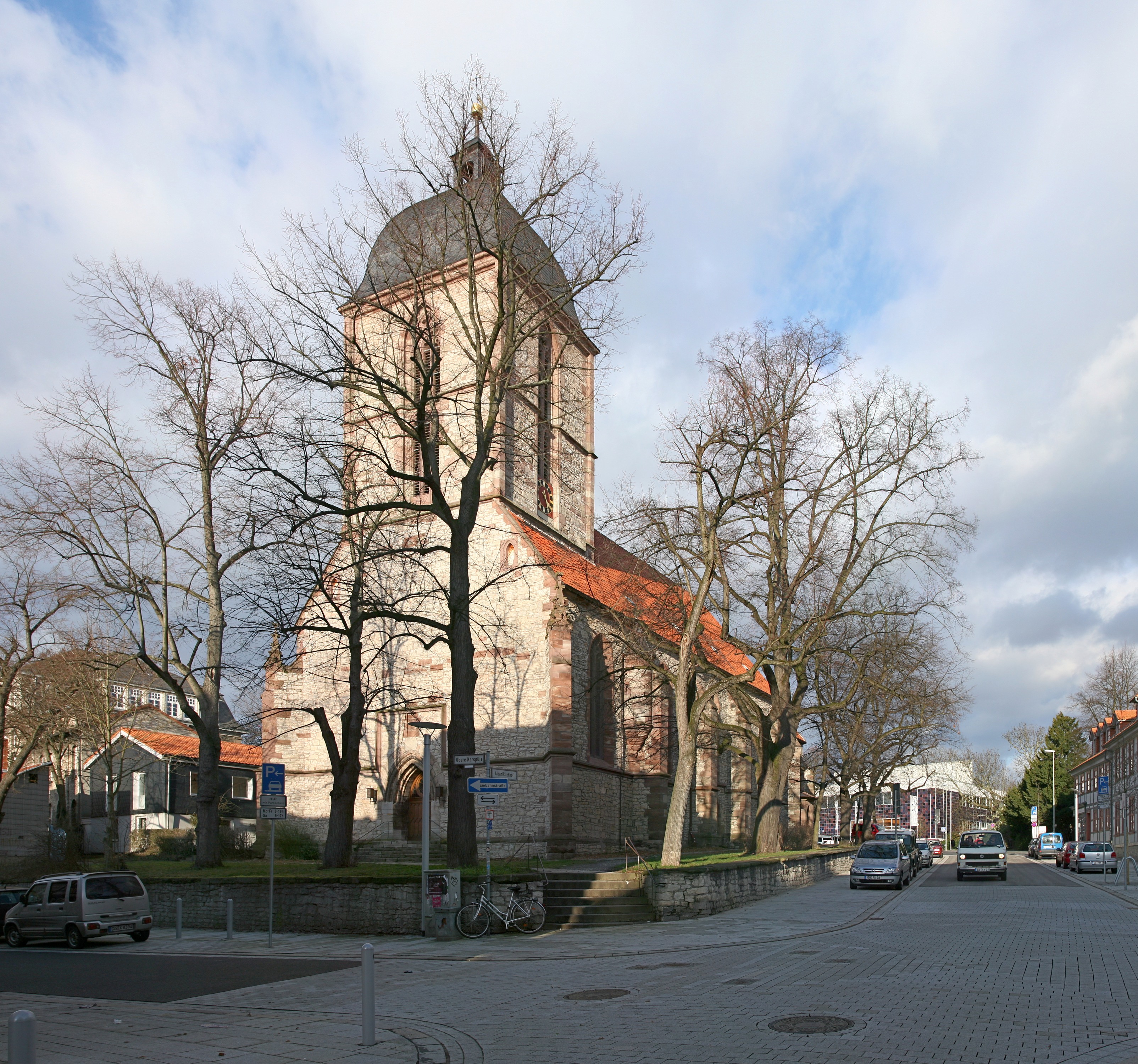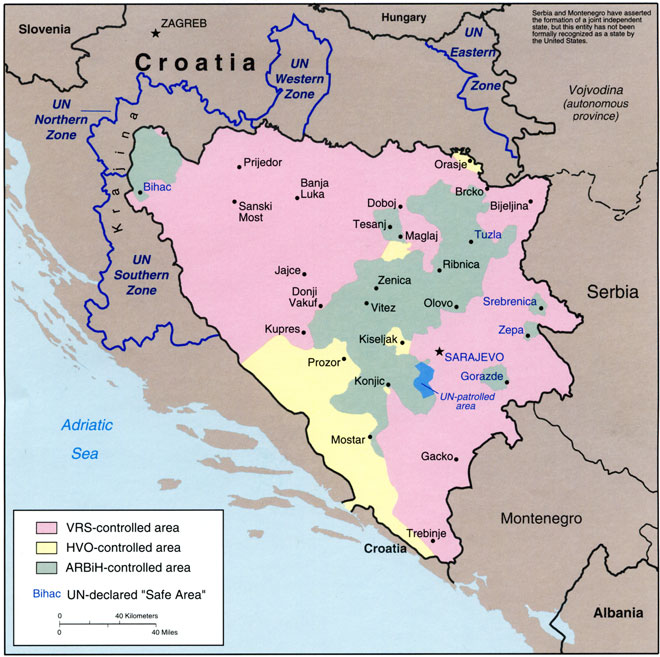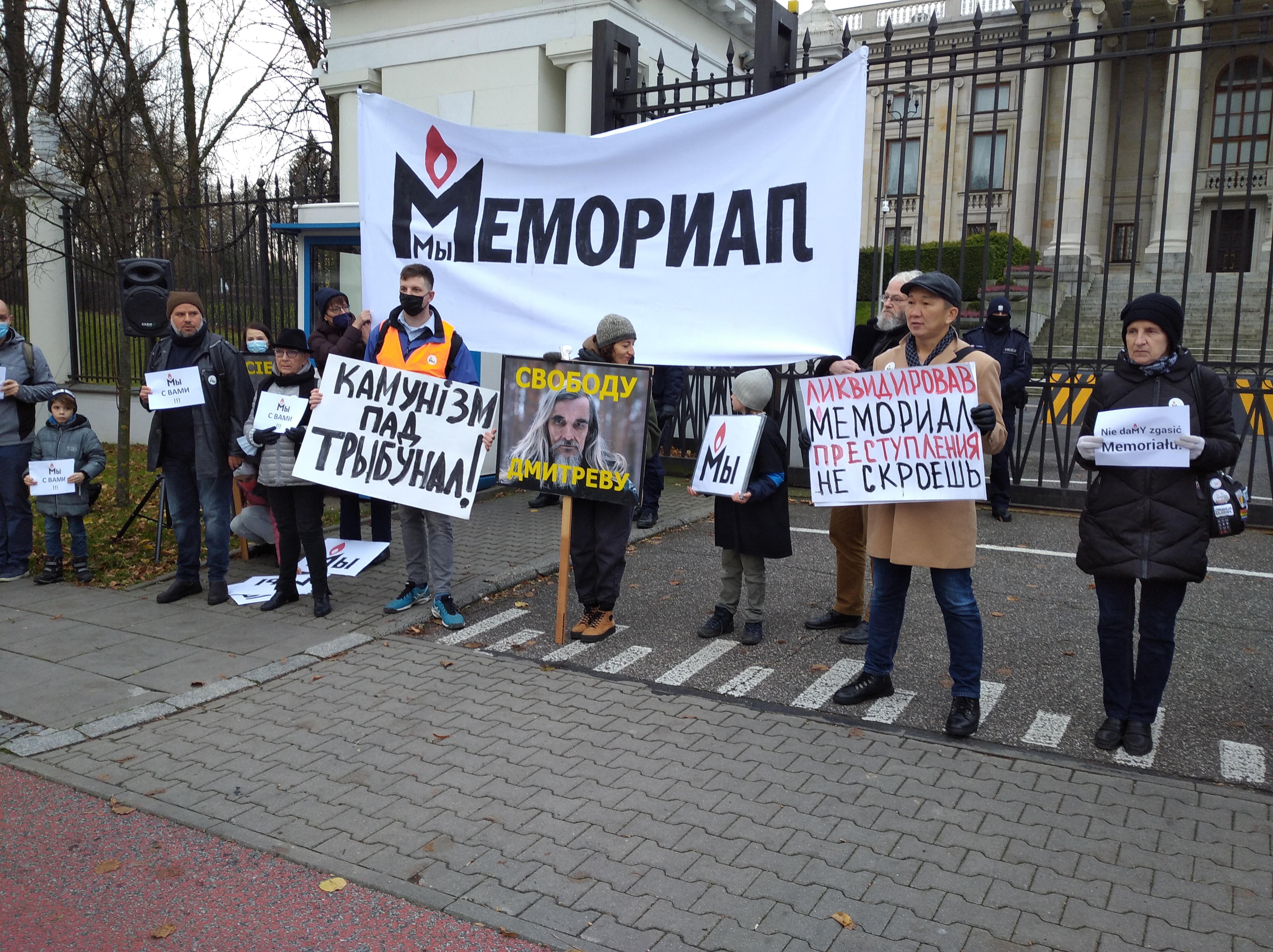|
Victor Gollancz Prize
The Victor Gollancz Prize is an international human rights prize awarded by the Society for Threatened Peoples. It is named for British humanitarian Sir Victor Gollancz. The prize is awarded in Göttingen. Laureates *2000: The society Mothers of Srebrenica and Zepa, Bosnia-Hercegovina, for their work to identify the victims of the Srebrenica Genocide *2001: Zainap Gaschajewa and Lipkan Basajewa, Chechnya, for their humanitarian work and documenting of crimes in Chechnya *2003: The Society of Former Female Bosnian Concentration Camp Prisoners, Bosnia-Hercegovina, for their humanitarian work for the survivors of the Serb concentration camps and organized war rape campaigns, and the Widows of Barzan-Tal, Iraq, for their work for the families of the victims of the Barzan-Tal massacre *2004: Libkan Basaeva, Chechnya *2005: Sergei Kovalev, Russia, for his documenting of Russian crimes in Chechnya and his work within the Memorial organization, and Mustafa Dzhemilev, for his work for the ... [...More Info...] [...Related Items...] OR: [Wikipedia] [Google] [Baidu] |
Human Rights
Human rights are universally recognized Morality, moral principles or Social norm, norms that establish standards of human behavior and are often protected by both Municipal law, national and international laws. These rights are considered inherent and inalienable, meaning they belong to every individual simply by virtue of being human, regardless of characteristics like nationality, ethnicity, religion, or socio-economic status. They encompass a broad range of civil, political, economic, social, and cultural rights, such as the right to life, freedom of expression, protection against enslavement, and right to education. The modern concept of human rights gained significant prominence after World War II, particularly in response to the atrocities of the Holocaust, leading to the adoption of the Universal Declaration of Human Rights (UDHR) by the United Nations General Assembly in 1948. This document outlined a comprehensive framework of rights that countries are encouraged t ... [...More Info...] [...Related Items...] OR: [Wikipedia] [Google] [Baidu] |
Society For Threatened Peoples
The Society for Threatened Peoples International STPI (-International, GfbV-International) is an international NGO and human rights organization with its headquarters in Göttingen, Germany. Its aim is to create awareness of and protect minority peoples around the world who are threatened by oppressive governments. The society states that it "campaigns against all forms of genocide and ethnocide." It has consultative status with the United Nations, participatory status with the Council of Europe, and has branches in Germany, Austria, Switzerland, Italy, Bosnia and Herzegovina, and Iraqi Kurdistan. The Secretary General of the Society for Threatened Peoples International (STPI) and Society for Threatened Peoples-Germany (STP) is Tilman Zülch. The society awards the Victor Gollancz Prize. The Society for Threatened Peoples has a strong focus on Eastern Europe and other parts of Eurasia, including Russia and the Balkans, but it also works with countries in Africa and the Middle Ea ... [...More Info...] [...Related Items...] OR: [Wikipedia] [Google] [Baidu] |
Victor Gollancz
Sir Victor Gollancz (; 9 April 1893 – 8 February 1967) was a British publisher and humanitarian. Gollancz was known as a supporter of left-wing politics. His loyalties shifted between liberalism and communism; he defined himself as a Christian socialist and an internationalist. He used his publishing house, Victor Gollancz Ltd, chiefly to promote pacifist and socialist non-fiction, and he launched the Left Book Club. In the postwar era, he focused his attention on Germany and became known for his promotion of friendship and reconciliation based on his internationalism and his ethic of brotherly love. He founded the organisation Save Europe Now (SEN) in 1945 to campaign for humane treatment of German civilians, and drew attention to their suffering, especially children, and atrocities committed against German civilians. He received an honorary doctorate at the Goethe University Frankfurt, University of Frankfurt in 1949, the Order of Merit of the Federal Republic of Germany, Gro ... [...More Info...] [...Related Items...] OR: [Wikipedia] [Google] [Baidu] |
Göttingen
Göttingen (, ; ; ) is a college town, university city in Lower Saxony, central Germany, the Capital (political), capital of Göttingen (district), the eponymous district. The River Leine runs through it. According to the 2022 German census, the population of Göttingen was 124,548. Overview The origins of Göttingen lay in a village called ''Gutingi, ''first mentioned in a document in 953 AD. The city was founded northwest of this village, between 1150 and 1200 AD, and adopted its name. In Middle Ages, medieval times the city was a member of the Hanseatic League and hence a wealthy town. Today, Göttingen is famous for its old university (''Georgia Augusta'', or University of Göttingen, "Georg-August-Universität"), which was founded in 1734 (first classes in 1737) and became the most visited university of Europe. In 1837, seven professors protested against the absolute sovereignty of the House of Hanover, kings of Kingdom of Hanover, Hanover; they lost their positions, but ... [...More Info...] [...Related Items...] OR: [Wikipedia] [Google] [Baidu] |
Srebrenica Genocide
The Srebrenica massacre, also known as the Srebrenica genocide, was the July 1995 genocidal killing of more than 8,000 Bosniak Muslim men and boys in and around the town of Srebrenica during the Bosnian War. It was mainly perpetrated by units of the Bosnian Serb Army of Republika Srpska under Ratko Mladić, though the Serb paramilitary unit Scorpions (paramilitary), Scorpions also participated. The massacre was the first legally recognised genocide in Europe since the end of World War II. Before the massacre, the United Nations (UN) had declared the Siege of Srebrenica, besieged enclave of Srebrenica a "United Nations Safe Areas, safe area" under its protection. A UN Protection Force contingent of 370 lightly armed Dutchbat, Dutch soldiers failed to deter the town's capture and subsequent massacre. A list of people missing or killed during the massacre contains 8,372 names. , 6,838 genocide victims had been identified through DNA analysis of body parts recovered from mass grav ... [...More Info...] [...Related Items...] OR: [Wikipedia] [Google] [Baidu] |
War Rape
Wartime sexual violence is rape or other forms of sexual violence committed by combatants during an armed conflict, war, or military occupation often as spoils of war, but sometimes, particularly in ethnic conflict, the phenomenon has broader sociological motives. Wartime sexual violence may also include gang rape and rape with objects. It is distinguished from sexual harassment, sexual assaults and rape committed amongst troops in military service. During war and armed conflict, rape is frequently used as a means of psychological warfare in order to humiliate and terrorize the enemy. Wartime sexual violence may occur in a variety of situations, including institutionalized sexual slavery, wartime sexual violence associated with specific battles or massacres, as well as individual or isolated acts of sexual violence. Rape can also be recognized as genocide when it is committed with the intent to destroy, in whole or in part, a targeted group. International legal ins ... [...More Info...] [...Related Items...] OR: [Wikipedia] [Google] [Baidu] |
Sergei Kovalev
Sergei Adamovich Kovalyov (also spelled Sergey Kovalev; ; 2 March 1930 – 9 August 2021) was a Russian human rights activist and politician. During the Soviet period he was a dissident and, after 1975, a political prisoner. Early career and arrest Kovalyov was born in the town of Seredyna-Buda, near Sumy (in Soviet Union, now Ukraine)."Sergei Kovalyov, Heir to Sakharov who always put Principles first, Dies At 91" (9 August 2021) In 1932, his family moved to Podlipki village near Moscow. In 1954, Kovalyov graduated from |
Mustafa Dzhemilev
Mustafa Abduldzhemil Jemilev (, ), also known widely with his adopted descriptive surname Qırımoğlu "Son of Crimea" ( Crimean Tatar Cyrillic: , ; born 13 November 1943, Ay Serez, Crimea), is the former chairman of the Mejlis of the Crimean Tatar People and a member of the Ukrainian Parliament since 1998. Commissioner of the President of Ukraine for the Affairs of the Crimean Tatar People (2014–2019). He is a member of the Crimean Tatar National Movement and a former Soviet dissident. Biography Life in the Soviet Union Dzhemilev was born to a Crimean Tatar family on 13 November 1943 in Ay-Serez, Crimea, then Russian SFSR, though at the time under Nazi occupation. He was only six months old when his family, with the rest of the Crimean Tatar population, was deported by Soviet authorities in May 1944, soon after Soviet forces retook the peninsula. He grew up in exile, in the Uzbek SSR. At the age of 18, Dzhemilev and several of his activist friends established the Unio ... [...More Info...] [...Related Items...] OR: [Wikipedia] [Google] [Baidu] |
Halima Bashir
Halima Bashir () is the fictitious name of a Sudanese medical doctor, who is the author of '' Tears of the Desert'', a memoir about women's experiences with genocide and war in Darfur. She worked as a doctor in rural Sudan, before being abused at the hands of the National Intelligence and Security Service after reporting truthfully to United Nations officials about an attack by the Janjaweed militia on a nearby school. She has since moved to the United Kingdom, where she claimed asylum. Life Halima Bashir, a pseudonym later adopted to protect her, grew up in rural Darfur in Western Sudan. She was the oldest of four children, and did well in school. At the age of eight, she underwent female circumcision. A special meal was held, and she was given money, before being held down in the hut of her grandmother while a razor without anaesthetic was used to cut off any external genitalia. Her father was supportive when she trained to become a doctor; her father was wealthy enough to send ... [...More Info...] [...Related Items...] OR: [Wikipedia] [Google] [Baidu] |
Jovan Divjak
Jovan Divjak ( sr-cyrl, Јован Дивјак; 11 March 1937 – 8 April 2021) was a Bosnian army general who served as the Deputy Commander of the Bosnian army's general staff until 1994, during the Bosnian War. Early life and education Divjak was born in Belgrade to parents originally from the Bosanska Krajina region of Bosnia. His father was stationed in the Yugoslav People's Army (JNA) in Serbia. His family, like himself when he was alive, currently reside in Sarajevo, where Divjak moved in 1966. From 1956 to 1959, he attended the Military Academy in Belgrade. In 1964 and 1965, he attended the École d'État Major in Paris. Although Divjak was an ethnic Serb born in Serbia, he identified as a Bosnian. Career From 1969 to 1971, Divjak was in the Cadet Academy in Belgrade, and from 1979 to 1981, he served in the War and Defense Planning School there. After several posts in the JNA, he was appointed Territorial Defense Chief in command of the Mostar sector from 1984 to 198 ... [...More Info...] [...Related Items...] OR: [Wikipedia] [Google] [Baidu] |
Memorial (society)
Memorial ( rus, Мемориал, p=mʲɪmərʲɪˈaɫ) is an international human rights organisation founded in Russia during the fall of the Soviet Union to study and examine the Human rights in the Soviet Union, human rights violations and other crimes committed under Joseph Stalin's reign. Subsequently, it expanded the scope of its research to cover the entire Soviet period. Memorial is the recipient of numerous awards, among others the Nobel Peace Prize in 2022 Nobel Peace Prize, 2022. Prior to its dissolution in Russia in early 2022, it consisted of two separate legal entities, Memorial International, whose purpose was the recording of the crimes against humanity committed in the Soviet Union, particularly during the Stalinist era, and the Memorial Human Rights Centre, which focused on the human rights defender, protection of human rights, especially in conflict zones in and around modern Russia. A movement rather than a unitary system, as of December 2021 Memorial encompa ... [...More Info...] [...Related Items...] OR: [Wikipedia] [Google] [Baidu] |






